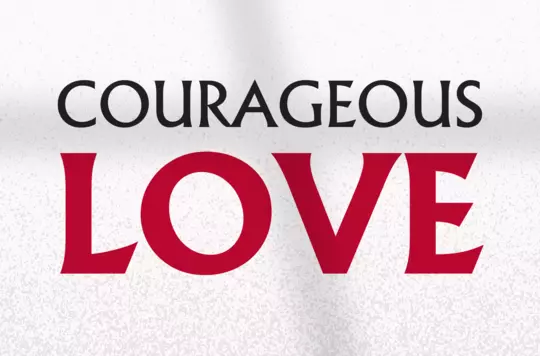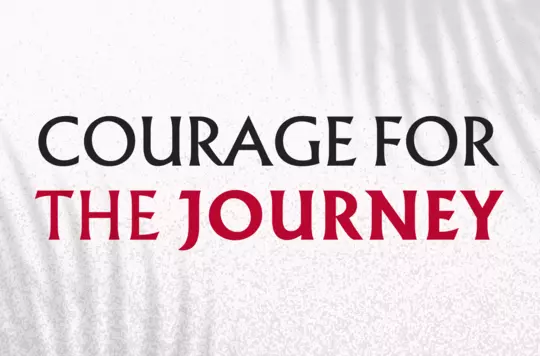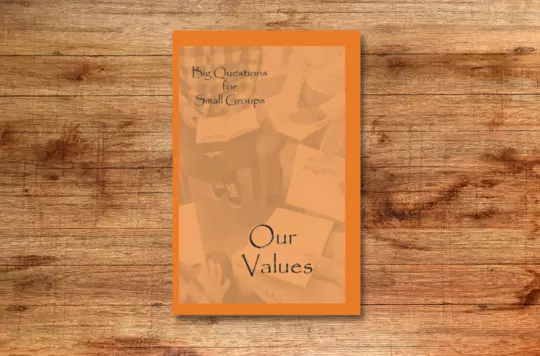3 April 2023
Pilate and Jesus: How do we make our decisions?
Major Malcolm Martin
Major Malcolm Martin considers the conflict of opinion about Jesus.
Key text
‘I see no reason. I find no evil./ This man is harmless, so why does he upset you?/ He’s just misguided, thinks he’s important,/ But to keep you vultures happy, I shall flog him.’
‘Trial Before Pilate’ in the musical Jesus Christ Superstar presents a somewhat faithful picture of a figure who fails to truly grasp who Jesus is, attempts various strategies to avoid condemnation, and then finally gives in to public pressure.
Pilate often appears to ask the right questions: ‘What is it you have done?’ (John 18:35), ‘What is truth?’ (John 18:38) and ‘Where do you come from?’ (John 19:9). However, he appears to struggle to truly understand the responses that Jesus offers. John’s account emphasises questions about kingship and power.
Pause and reflect
- What are some of the key questions that you have already brought to Jesus?
- What initial questions arise from reading our study passage?
Matthew and Mark both place the scourging of Jesus immediately before his crucifixion; the brutal nature of the punishment was designed to hasten death on the cross. In John’s Gospel, the reference to flogging in the middle of the trial may suggest a lighter form of punishment that was usually intended to warn the accused not to commit any future offences (see Luke 23:16).
The soldiers, attuned to everyday violence, then cruelly extend the punishment with a mock coronation, dressing Jesus up in an evident parody of kingship.
The 12-inch leaves of the thorny date palm may have been arranged in the form of a radiant sun crown, somewhat like that found on the Statue of Liberty. The dark red cloak of a soldier could have imitated a robe of expensive royal purple. The soldiers crudely mocked Jesus by greeting him like the Roman Emperor Tiberius, violently mistreating him ‘again and again’ (Mark 15:19) as they paid faux homage. There is considerable irony in the fact that their actions, intended as abusive contempt for one that they believed was of no consequence, are full of meaning for the reader.
Pause and reflect
- Do our words and deeds convey the peace and love of God’s Kingdom or the bullying violence that often seems prevalent in the world?
Pilate theatrically brings out this humiliated figure, still dressed up like a king, with the evident hope that the crowd will agree that this pathetic example of humanity is no real threat. ‘Here is the man!’ (John 19:5) is an expression of contempt for this poor, humiliated creature, who is far from popular notions of regal bearing and kingly power.
Rather than responding with the hoped-for sympathy, the crowd fervently calls for the shameful death of a criminal outcast. An exasperated Pilate tells them to enact the sentence themselves, despite knowing that they had no authority to do so – perhaps still hoping that the charges might be withdrawn.
A change of tack shifts the charges from the political sphere to the religious – ‘he claimed to be the Son of God’ (v7). This area is outside Pilate’s jurisdiction, deepening his unease and fear. Accounts of divine figures appearing in human form were relatively common in Roman mythology; Pilate therefore had reason to fear what Jesus might do to him.
‘Where do you come from?’ is a recurring theme in John’s Gospel; the refusal of Jesus to offer an answer seems to move Pilate from a state of fear to one of annoyance. He reminds Jesus of the power that he holds over his life, but the response of Jesus is to highlight the delegated nature of power.
For Jesus, ‘from above’ (v11) is clearly a reference to God, but Pilate may well be fixed on the earthly power that has been delegated to him by the Emperor, leading to the next stage of the scene.
Pilate again tries to effect the release of Jesus but is cowed by the threat that his actions could suggest disloyalty to the highly suspicious Emperor. ‘Here is your king’ seems to be understood by the crowd as a mocking taunt, which only increases the vehemence of their demands for Jesus to be done away with.
In John’s perfect timescale, the sentence is passed on Jesus just as the Passover lambs are being slaughtered. The Gospel has reached its promised climax, where the Lamb of God takes away the sin of the world (see John 1:29).
Pause and reflect
- Listen to the song ‘Trial Before Pilate’ from Jesus Christ Superstar. To what extent do you feel it successfully portrays Pilate’s desperation to avoid having to condemn Jesus?
Pilate is often portrayed somewhat sympathetically as someone who does not wish to condemn a man whom he clearly believes to be innocent; he epitomises a relatively ordinary person faced with a seemingly impossible dilemma. But his concern to maintain the status quo – in terms of power, position and delicate peace – means he is ultimately willing to compromise on justice. He finds no basis for any of the charges against Jesus (see John 18:38 and 19:4–6), but allows him to be punished and executed.
Pilate’s lack of resolve appears to stem from expediency, self-interest and vacillating pragmatism, which overcome his deeper instincts. Jesus suffers humiliation and death but is ultimately shown to possess true kingship and far greater power than Pilate.
Pause and reflect
- Are there times when our decisions are based on ambition or fear, rather than courage and depth of conviction?
In Big Questions for Small Groups: Our Values, we read: ‘We don’t have to find our own boldness but, rather, seek the Holy Spirit as the source of our empowering.’
Let us pray for a fresh infilling of the Holy Spirit as the foundation of true boldness for faithful living.
Bible study by

Major Malcolm Martin
Corps Officer, Thornton Heath, Publishing Secretary, THQ
Discover more

Resources to support intentional moments of reflection this Holy Week and inspire courageous love as we look to the love of Jesus this Good Friday and Easter Sunday.

Resources to help you explore courage this Lent including material for Palm Sunday.


